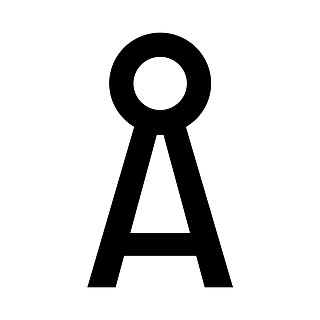 W
WARMEDANGELS is a fashion label based in Cologne, Germany. Founded in 2007, the company designs a variety of apparel products made from textiles such as organic cotton and sells them via their online shop as well as in boutiques and major retails stores in six countries. The label creates and produces sustainable fashion that aims to be both ethical and fashionable, while attempting to appeal to the LOHAS demographic. According to the company, they are attempting to change the perception of eco-friendly clothing being "hippy like" and not fashionable to it being perceived as 'hip', 'chic' streetwear. Furthermore, ARMEDANGELS aims to make a social statement about fashion and works exclusively with socially responsible companies that are certified as being fair trade. The main goal of their community is to raise awareness about the fashion industry and—what in their minds are—the injustices that arise as a result. The German press has referred to ARMEDANGELS as being "eco warriors in the process of saving the world", who contribute alongside like-minded people including celebrities such as Natalie Portman, Leonardo DiCaprio and Al Gore.
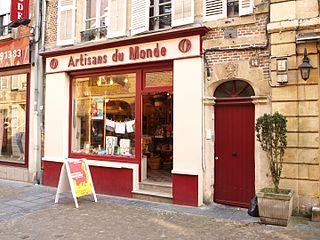 W
WArtisans du monde is a French network of local fair trade associations, currently the most important non-profit fair trade movement in France. The first associations were founded in 1974, and their number then increased to reach 170 today. Most of them manage local fair trade shops, but their tasks include also awareness raising activities, and educational interventions in schools.
 W
WThe Asociación del Sello de Productos de Comercio Justo (ASPCJ) is the Spanish member of FLO International, which unites 23 Fairtrade producer and labelling initiatives across Europe, Asia, Latin America, North America, Africa, Australia and New Zealand.
 W
WAssociation Max Havelaar France is the French member of FLO International, which unites 23 Fairtrade producer and labelling initiatives across Europe, Asia, Latin America, North America, Africa, Australia and New Zealand.
 W
WCanaan Fair Trade is a supplier of bulk as well as finished and packaged olive oil and other goods to Europe, North America and the Middle East. It was founded in 2004 by Palestinian-American Nasser Abufarha and is based in the West Bank city of Jenin.
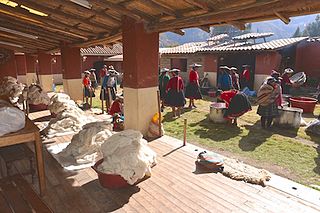 W
WCentro de Textiles Tradicionales del Cusco was founded by indigenous weavers from the community of Chinchero as well as international supporters in 1996 as a non-profit organization. It is based out of the city of Cusco, Peru where its main offices, museum and shop are located. The CTTC works in support of indigenous weavers from the Cusco region to recover traditional Cusqueñan textiles. The organization currently partners with ten communities from the Cusco region: Accha Alta, Acopia, Chahuaytire, Chinchero, Huacatinco, Mahuaypampa, Patabamba, Pitumarca, Santa Cruz de Sallac, and Santo Tomas (Chumbivilcas).
 W
WCounter Culture Coffee is a Durham, North Carolina based coffee roasting company founded in 1995. It has regional training locations in Asheville, NC; Atlanta; Boston; Charleston, SC; Chicago; Durham, NC; Emeryville, CA; New York City; Philadelphia; and Washington D.C. Counter Culture training centers provide education in the fundamentals of preparing and serving coffee and serve as classrooms and event spaces. Training centers are not only for vendors of Counter Culture Coffee, but are also available to anyone that is interested in the production of coffee. Training centers also host competition training, food events with guest chefs, and professional workshops.
 W
WFair Grounds is a Bradford based Fair Trade social enterprise. Fair Grounds exists to enable people to make informed ethical lifestyle and consumer choices. Fair Grounds buys from producers within an ethical business model and has a relationship with each producer. Fair Grounds sells Fair Trade products wholesale, retail in a Fair Grounds shop in Sheffield and at various events, and conducts an education programme in schools teaching about social justice and trade. Fair Grounds ltd is a member of BAFTS.
 W
WThe Fair Trade Association of Australia and New Zealand is a member-based organization that supports two systems of fair trade. The first is the Australia and New Zealand member of FLO International, which unites Fairtrade producer and labeling initiatives across Europe, Asia, Latin America, North America, Africa, Australia and New Zealand. The second, is the World Fair Trade Organization (WFTO), of over 450 worldwide members, to which the Fair Trade Association is one. Fairtrade refers to FLO certified commodity and associated products. Fair trade encompasses the wider Fair Trade movement, including the Fairtrade commodities and other artisan craft products.
 W
WFair trade cocoa is an agricultural product harvested from a cocoa tree using a certified process which is followed by cocoa farmers, buyers, and chocolate manufacturers, and is designed to create sustainable incomes for farmers and their families. Companies that use fair trade certified cocoa to create products can advertise that they are contributing to social, economic, and environmental sustainability in agriculture.
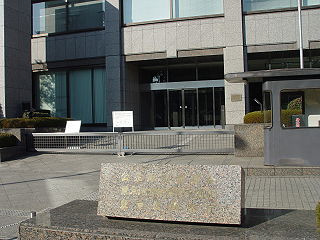 W
WThe Japan Fair Trade Commission is the competition regulator in Japan. It is a commission of the Japanese government responsible for regulating economic competition, as well as enforcement of the Antimonopoly Act. Headed by a chairman, the commission is commonly known as Kōtori (公取) or Kōtorii (公取委).
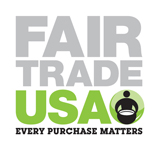 W
WFair Trade USA, formerly "TransFair USA", is a 501(c)(3) non-profit organization that sets standards, certifies, and labels products that promote sustainable livelihoods for farmers and workers and protect the environment.
 W
WFair Wear Foundation is an independent multi-stakeholder organisation that works with garment brands, garment workers and industry influencers to improve labour conditions in garment factories. Receiving the Fair Wear stamp of approval does not guarantee any existing quality of labour standards, instead only demonstrating a stated interest in working toward improvement.
 W
WFairtrade Canada, formerly TransFair Canada, is a national non-profit certification and public education organization promoting Fairtrade certified products in Canada to improve the livelihood of developing world farmers and workers. It is the Canadian member of FLO International, which unites 24 fair trade producer and certification initiatives across Europe, Asia, Latin America, North America, Africa, Australia and New Zealand.
 W
WThe Fairtrade Foundation is a charity based in the United Kingdom that works to empower disadvantaged producers in developing countries by tackling injustice in conventional trade, in particular by promoting and licensing the Fairtrade Mark, a guarantee that products retailed in the UK have been produced in accordance with internationally agreed Fairtrade standards. The Foundation is the British member of FLO International, which unites FLO-CERT, 25 National Fairtrade Organisations and 3 Producer Networks across Europe, Asia, Latin America, North America, Africa, Australia and New Zealand.
 W
WFairtrade International, or Fairtrade Labelling Organizations International e.V. (FLO) is a product-oriented multistakeholder group aimed at promoting the lives of farmers and workers through trade. Fairtrade's work is guided by a global strategy focused on ensuring that all farmers earn a living income, and agricultural workers earn a living wage. Fairtrade works with farmers and workers of more than 300 commodities. The main products promoted under the Fairtrade label are coffee, cocoa, banana, flowers, tea, and sugar.
 W
WFairtrade Ireland is the Irish member of FLO International, which unites 23 Fairtrade producer and labelling initiatives across Europe, Asia, Latin America, North America, Africa, Australia and New Zealand.
 W
WGoodWeave International, formerly known as Rugmark, is a network of non-profit organizations dedicated to ending illegal child labour in the rug making industry. Founded in 1994 by children's rights activist and Nobel Peace Prize winner Kailash Satyarthi, it provides a certification program that allows companies that pass inspection to attach a logo certifying that their product is made without child labour. It is an example of a product-oriented multistakeholder governance group.
 W
WGuayakí Sustainable Rainforest Products, Inc., more commonly known as Guayakí, is an organic beverage company specializing in yerba mate products based in Sebastopol, California. In addition to offering loose-leaf yerba mate, Guayakí also sells canned as well as carbonated yerba mate drinks, and energy shots. Guayakí receives American-nationwide distribution to approximately 10,000 stores, primarily through organic and health-oriented grocery stores such as Whole Foods among other retailers, as well as through online channels.
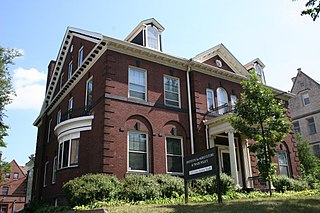 W
WThe Institute for Agriculture and Trade Policy (IATP) is a non-profit research and advocacy organization that promotes sustainable food, farm, and trade systems. IATP has offices in Minneapolis, Minnesota and Geneva, Switzerland, and operates both locally and internationally.
 W
WThe Max Havelaar Foundation is a non-profit certification and public education organization promoting Fairtrade products in Switzerland to improve the livelihood of developing world farmers and workers. The Max Havelaar Foundation is the Swiss member of FLO International, which unites 23 Fairtrade producer and labelling initiatives across Europe, Asia, Latin America, North America, Africa, Australia and New Zealand. Several of these corresponding organizations in other European countries also use the Max Havelaar name. The Swiss Max Havelaar organization was founded in 1992 by the Third World aid organisations Brot für alle, Caritas, Fastenopfer, HEKS, Helvetas and Swissaid.
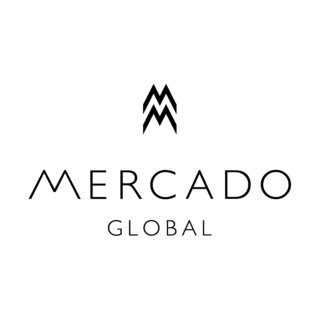 W
WMercado Global is a 501(c)3 social enterprise organization that links indigenous artisans in rural Guatemalan communities to international sales opportunities, providing sustainable income-earning opportunities, access to business training and community-based education programs, and access to microloans for technology such as sewing machines and floor looms. Mercado Global's network includes over 300 artisans in thirty-one artisan cooperatives whose members have seen their daily income increase three-fold compared to the average Guatemalan daily wage, has allowed them to send their children to school, and has seen significantly increased levels of saving and participation in household decision-making.
 W
WThe Organic Consumers Association (OCA) is a non-profit advocacy group for the organic agriculture industry based in Minnesota. It was formed in 1998 by members of the organic industry and consumers of organic products after the U.S. Department of Agriculture's controversial initial version of their proposed regulations for organic food was introduced. The organization's members include subscribers to their online newsletters, volunteers, supporters, and 3,000 retail outlets. The organisation seeks to influence public opinion on a variety of issues, such as campaigning for GMO labelling, by its own advocacy campaigns and providing funds to other groups and individuals whose goals align with the organisations members, such as US Right to Know (USRTK), of which the association is the sole major sponsor. The activities of these associated lobbying bodies have been called "antiscientific" and "akin to climate change denialism" by scientists, alleging also that they seek primarily to engage in harassment of food scientists.
 W
WOxfam is a British founded confederation of 20 independent charitable organizations focusing on the alleviation of global poverty, founded in 1942 and led by Oxfam International. It is a major nonprofit group with an extensive collection of operations.
 W
WThe Palestine Fair Trade Association (PFTA) is a Palestinian national union of fair trade producing cooperatives, processors, and exporters. It was founded in 2004 by Palestinian-American entrepreneur Nasser Abufarha.
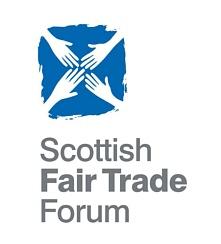 W
WThe Scottish Fair Trade Forum is a Scottish charitable body that describes its mission as '...to gain Fair Trade Nation status for Scotland.' The Forum continues to promote the inclusion and use of Fair Trade products through involvement in helping individual towns, schools, councils and public bodies throughout the country achieve Fairtrade Status.
 W
WSERRV International is a 501(c)(3) nonprofit, alternative trading organization operating in the United States, Africa, Asia and Latin America. The organization is credited to be one of the first fair trade initiatives worldwide, with imports as early as 1949. In 2006, it was one of the country's largest fair trade importers with annual sales of approximately $10 million. It currently works with 85 small-scale, cooperatively run producer groups in 35 countries.
 W
WShea Yeleen is a social enterprise that includes a 501(c)(3) nonprofit and a commercial entity that sells "high-quality, unrefined shea butter products." The mission of the organization is "to promote sustainable economic development in rural sub-Saharan Africa, empower and train women-owned shea butter cooperatives, and educate consumers in the U.S. about natural beauty care products and fair trade.
 W
WStichting Max Havelaar is the Dutch member of Fairtrade International, which unites 23 Fairtrade certification producer and labelling initiatives across Europe, Asia, Latin America, North America, Africa, Australia and New Zealand. Several of these corresponding organizations in other European countries also use the Max Havelaar name. The name comes from Max Havelaar, which is both the title and the main character of a Dutch 19th-century novel critical of Dutch colonialism in the Dutch East Indies.
 W
WThe Union of Indigenous Communities of the Isthmus Region, is a farmer's cooperative in the state of Oaxaca, Mexico. It was established in 1982 to assist in production, marketing and distribution of locally produced coffee and other products. UCIRI was a pioneer of organic coffee production and one of the first fair trade suppliers.
 W
WThe World Fair Trade Organization (WFTO), is a global association of 401 organizations who are committed to improving the livelihoods of economically marginalised producers. WFTO has members in 76 countries. Members are primarily fair trade enterprises, whose business model is verified by independent audit and peer review. Verification is at enterprise level, which covers all aspects of the business and supply chain. WFTO verification should not be confused with commodity certification systems, such as Fairtrade certification, where only a component of the product is covered. The WFTO product label can only be used by verified fair trade enterprises, which consist of producer cooperatives and associations, export marketing companies, importers, retailers, national and regional fair trade networks and Fair Trade Support Organizations. WFTO is democratically run on a one member one vote basis. WFTO was created in 1989 and was formerly the International Federation of Alternative Traders ("IFAT").